Top 10 mHealth Software You Need to Know for Better Patient Care

Overview
The healthcare industry is one of the most regulated and highly complex of all industry sectors. Both public and private healthcare organizations face multiple difficulties in giving quality patient care services due to heavy regulations. Evolving technology can assist healthcare institutions in addressing this issue with mobile health applications. In this post, we will dig deep into the top mHealth Software that can meet the diverse and ever-changing requirements of the sector.
As per the Global Digital Health Market Report, this segment will reach USD 508 billion by 2027 and technological advancements will play a vital role in achieving this target. Advancing technology can cover all services ranging from patient care to hospital administration and medication to research and development. Feature-rich and patient-centric mHealth (mobile health) applications can serve these objectives effectively.
Let’s see how they do it. Before moving ahead, this is for healthcare professionals who want to know more about mHealth app solutions or software!
Introduction of mHealth Software
Advanced mHealth software or applications is a set of tools that process medical data to bring transformative changes in healthcare services. mHealth applications can do it by collecting, using, and transferring patient data in a proper way, and in real-time. These applications assist hospitals to automate manual operations and enable doctors to streamline the process of diagnosis. They can also contribute to reducing the chances of human errors in various procedures significantly.
Healthcare facilities and service providers need specialized clinical software to improve administration and reduce operational expenses. Some mHealth applications are useful in healthcare supply management and some can give instant access to patient histories. Tailored mHealth app solutions have features like in-app reminders, notifications, and automated scheduling to enable patients to have a smooth interaction with physicians.
Moreover, remote patients can consult physicians and seek advice from them using healthcare software . Physicians can diagnose and prescribe medicines through remote consultation and give patients the advantage of a telemedicine concept.
Top Types of mHealth Applications or Software
Mobile health apps are of different types and built to serve specific purposes. Some of these apps are useful for patients while others assist physicians. Let’s dig deep into such software.

1. Electronic Health Records (EHR)
The two most popular EHR applications are the EPR (Electronic Person Record) and the EMR (Electronic Medical Record). Hospitals can use the EPR to store the patient’s data and the EMR can document the patient’s recovery training course. EHR solutions can reduce the danger of losing patient data and remain cost-effective compared to paper-based records.
Electronic records can eliminate the possibility of having duplicated or incorrect data. Doctors or healthcare service providers can access the patient’s data as and when necessary with EHRs.
2. Clinical Data Management Platforms
EHRs and other software can generate massive amounts of data during clinical and diagnostic studies. Innovative clinical data management platforms can store and analyze this data with the help of AI technology. It can improve the accuracy of both diagnosis and treatment.
Moreover, these platforms are beneficial in measuring the patient’s tolerance to prescribed medicines and their compatibility or allergies. These platforms give healthcare service providers the benefit of big data analytics for improving patient care services.
3. Telemedicine Solutions
As per a recent study, remote consultation is almost 20 percent cheaper than a physical consultation. The telemedicine concept makes it possible and increases the availability of medical services. The world has seen the strength of telemedicine during the recent pandemic age when people had to follow the norms of social distancing and quarantine. Telemedicine is here to stay and mHealth examples can support this trend while ensuring HIPAA compliance.
Remote patient monitoring software and applications can also contribute to spreading the telemedicine concept.
4. Biosensors
These solutions are in focus these days. As key elements of wearable health devices like fitness bracelets, biosensors are helpful in the operational monitoring of vital parameters. Healthcare organizations can use biosensors for patients with chronic diseases who require continuous monitoring of several physiological aspects simultaneously.
Doctors can get the collected information through biosensors continuously, and if necessary, they can take measures to save patients. These solutions also ensure more responsible behavior of patients.
5. Robotic Surgery Software
Robotic surgeries are complicated and their solutions are highly complex with innovative features like 3D visualization and voice control. Robotic surgery software can increase accuracy and reduce the chances of human errors significantly. These solutions can also reduce the level of traumatization during surgeries and patients take less time to recover.
Emerging technologies like AI and AR will make robotic surgery software more sophisticated and patient-centric in the coming years.
6. IoMT Solution
Internet of Medical Things (IoMT) is a revolutionary concept that combines various connected devices and sensors into a healthcare ecosystem. The IoMT solution can transfer the data to cloud storage for enabling multi-user access from remote locations. Timely monitoring of critical changes in physiological functions is possible through an IoMT solution.
Insulin pumps, smart pills, etc. are useful devices for therapies. Moreover, these digital solutions can optimize and control processes of medical institutions.
7. Patient Scheduling Software
Also known as the visit organizing software, this solution is capable of scheduling appointments. Usually, patients schedule appointments using mobile applications or websites. This software can manage such online appointments and offer numerous elements including weekly or monthly auto scheduling.
Patient scheduling software can also reduce the number of appointment scheduling failures and send reminders to patients via email or text messages. This software can assist physicians in managing their appointments on a daily or monthly basis.
8. RCM Software for Healthcare
Service providers can manage their income and revenue cycle with the help of healthcare RCM (Revenue Cycle Management) software. It can automate several manual tasks including billing and collection to increase the efficiency of healthcare professionals. A leading enterprise software development company can integrate advanced and relevant features in the healthcare RCM solution to make it more powerful and efficient. Hospitals can connect this software to other health devices to get a more effective outcome.
9. Pharmacy Management Software
It can monitor and manage pharmacy-related processes. This software can optimize drug inventory and distribution. Pharmacists and storekeepers can track the stock and monitor the movement on the move using the pharmacy management software. A comprehensive solution for drug store management can assist in pricing administration and automate claims processing.
Pharmacies can implement and manage robotic prescription vending systems with the help of a dedicated pharmacy management solution.
Health Tracking and Billing Software
Healthcare monitoring and payment software is useful for healthcare and insurance service providers alike. A tailored healthcare billing application can simplify and automate the payment process. It also offers swift and secure repayment options. Health tracking solutions can monitor vital parameters and determine the patient’s progress.
Healthcare facilities can integrate this solution with IoT devices to collect and analyze the patient’s health data. Headspace and MyFitnessPal are some popular examples of health-tracking applications.
Know more about Health Care Industry
Top Benefits of mHealth Software for Hospitals
mHealth solutions are helpful for patients and beneficial for physicians. Here are the top benefits of tailored mHealth software for healthcare organizations.
Better Care
Advanced mobile health solutions can help providers improve patient care services. These solutions can increase patient engagement resulting in better clinical outcomes. Hospitals can get feature-rich mobile healthcare solutions to facilitate their patients to reach out to doctors even after physical consultations. It can build lasting rapport and encourage patients to adhere to standard treatment procedures.
Improved Access
People living in remote areas or distant rural locations may not access proper medical care due to a lack of specialists. However, mobile health applications can enable them to consult with doctors from their houses and gain an advantage of telemedicine. Patients with chronic physical or mental diseases find these solutions extremely useful because of anytime and anywhere access to physicians or therapists.
Enhanced Monitoring
Custom mobile solutions for healthcare facilitate physicians to monitor remote patients who need extended observational or home care. These solutions can record and transmit vitals like heart rate, glucose level, weight, and blood pressure in real time. Doctors can make an accurate prognosis and give a proper course of action based on this data. In a way, mHealth applications can improve remote monitoring.
Reduced Costs
Advanced software for hospitals can streamline administrative and other related processes. Healthcare service providers can gain the advantages of accuracy and automation through mHealth solutions. They can also manage their resources more effectively thereby reducing operational costs and other expenses.
You can consult a reputed software development company to know more benefits and ways to implement bespoke healthcare solutions for web and mobile platforms .
Concluding Lines
Better patient care, seamless access, and cost-to-service balance for enhancing the patient’s trust- tailored mHealth solutions offer multiple benefits to healthcare institutions or multispeciality hospitals. Patient scheduling, pharmacy management, IoMT, and other software can take healthcare services to a new level by increasing trust and optimizing processes. We will see advanced mHealth software with features based on technological advancements in the domains of diagnosis and surgery.
Silicon IT Hub is a trusted mHealth software development company. Our in-house team of developers can build robust healthcare solutions with future-ready features and flawless functionality. Do you want to explore the scope of tailored mHealth solutions for your healthcare organization? Send us an email at info@siliconithub.com and our business consultant will get back to you soon.





 Have an Idea?Let’s Build It Together!
Have an Idea?Let’s Build It Together!